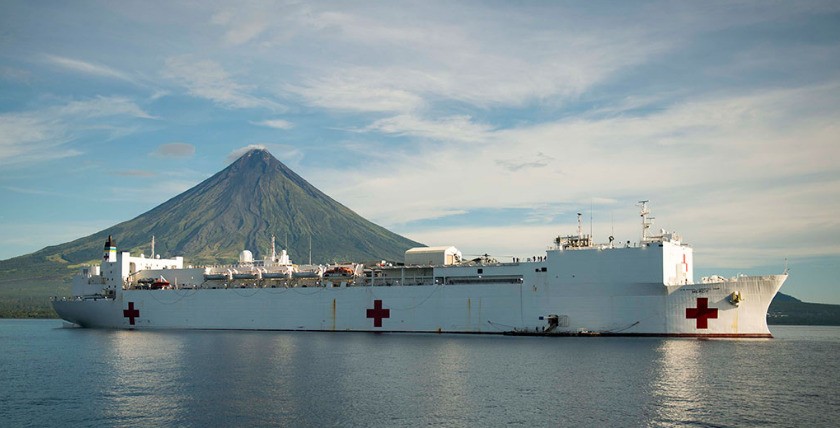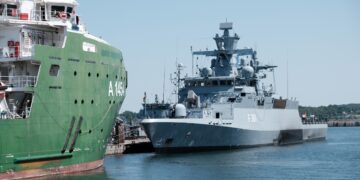Only a few countries have hospital ships, despite the great advantages. A possibility for Germany?
The Helgoland's mission in Vietnam ended 50 years ago. As a hospital ship in the Vietnam War from 1966 to 1972, it was the German response to the American request for military assistance. The German government had the seaside resort ship converted into a hospital ship with 150 hospital beds. The German Red Cross took over the sponsorship. The Helgoland's first mission took it to Saigon, after which it was transferred to Da Nang in the north. At that time, the important US Army base with its 350,000 inhabitants had just 500 hospital beds for the population. Around 12,000 people were treated as inpatients, in addition to 70,000 initial consultations and 130,000 multiple consultations in the outpatient department. Around 56,000 X-rays were taken, almost 11,000 operations were performed and the same number of whole blood units were used.
The term hospital ship goes back to the Order of St John of Jerusalem, which donated a troop ship, the Santa Maria, in 1523 to serve as a hospital. At the end of 1608, HMS Goodwill, registered as a hospital ship, briefly accompanied a Royal Navy squadron to the Mediterranean. At the time, it was used to transport the wounded to the nearest harbour rather than to provide medical care. Over 90 hospital ships served in the Royal Navy during the First World War.
Access?
- Access to all articles from the marineforum magazine
- Easy payment via PayPal, direct debit or credit card
- The subscription can be cancelled at any time free of charge
- Free of charge for MOV members












I think the discussion about a hospital component makes sense - not necessarily as a capability of the German Navy, but as a maritime tool in the toolbox of the European (!) maritime security strategy.
The Americans are once again showing us how to think smaller, newer and more agile with the "Fast Expeditionary Hospital Ship" (two of which are to be procured). The focus is no longer on mass casualty incidents, but on focussed action and relief.
https://www.thedrive.com/the-war-zone/the-navys-first-medical-ship-in-35-years-will-be-unlike-any-before-it
A side effect of the changing world situation and the shrinking (US) fleets is that there are also fewer platforms available as floating hospitals or lecture theatres, as proposed by the Global Partnership Station concept of the late 2000s!
In Germany, the topic of hospital ships often attracts the attention of naval experts. The demand that the German navy needs such a ship is a recurring theme. Isn't it true that Germany, and therefore also the EU, would benefit from having such a humanitarian capacity in line with its orientation as a force for peace?
The U.S. ships "Mercy" and "Comfort" are often cited as examples, overlooking the fact that the main task of these ships is to care for wounded U.S. soldiers on missions overseas. Only then are they available for humanitarian missions.
This raises two questions. Firstly, it must be examined whether the Bundeswehr needs such a floating casualty care capability in the assumed war scenarios. If this is not the case, the question arises as to whether Germany should nevertheless maintain this capability for civilian disasters.
The first question can clearly be answered in the negative. Large overseas deployments are even less likely to be part of the Bundeswehr's remit than in the past 25 years. The largest number of wounded is likely to be in European land warfare, and the hospital trains already under consideration are much more suitable for this purpose.
So the question remains as to whether Germany should nevertheless maintain a hospital ship. This can certainly be a good way of showing political goodwill. It is therefore a political decision as to whether you want to make the effort. However, if such a ship does not primarily have a military mission, it should not be part of the Bundeswehr. This is particularly true in view of the tight personnel situation not only in the navy, but also in the medical service and not least in procurement.
Particularly in view of the Bundeswehr's concentration of all its forces on national and alliance defence, it should not be burdened with the costs associated with the procurement and operation of such a ship.